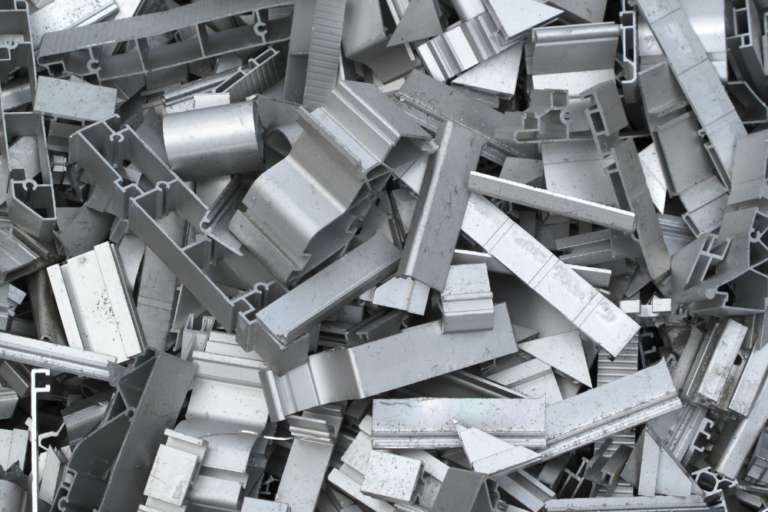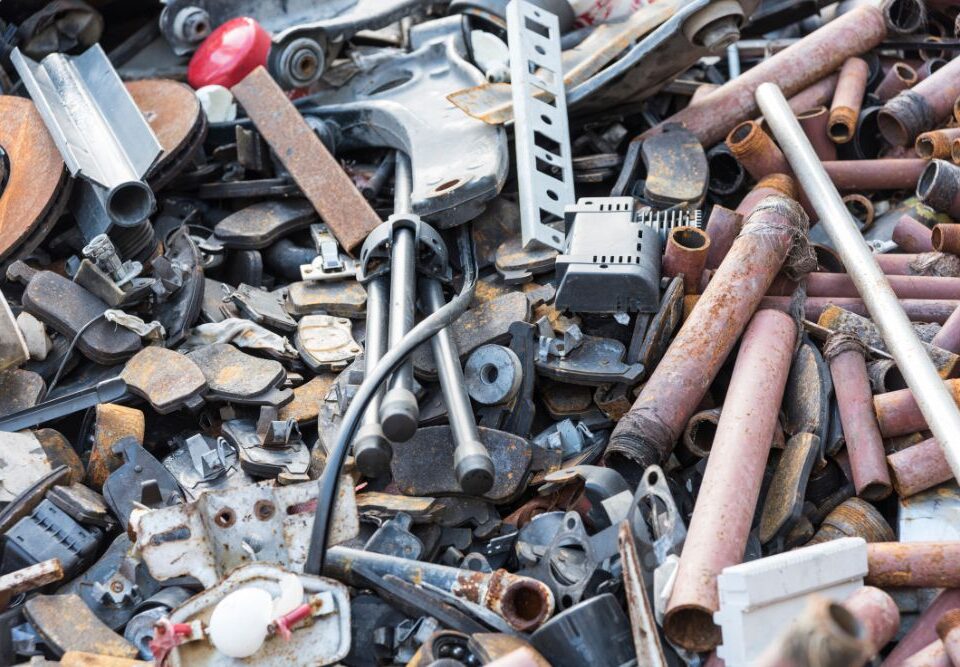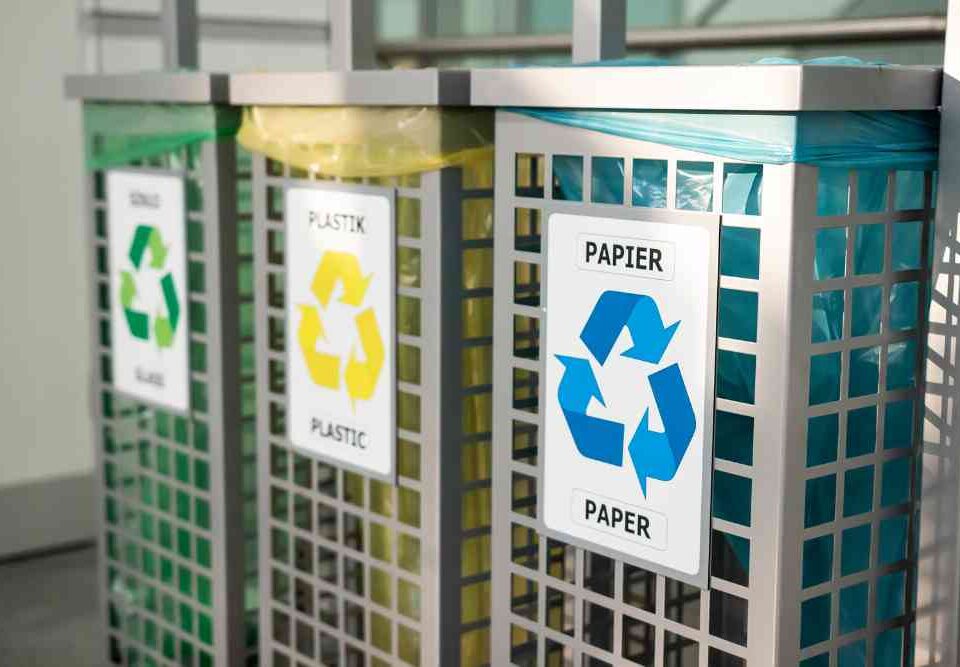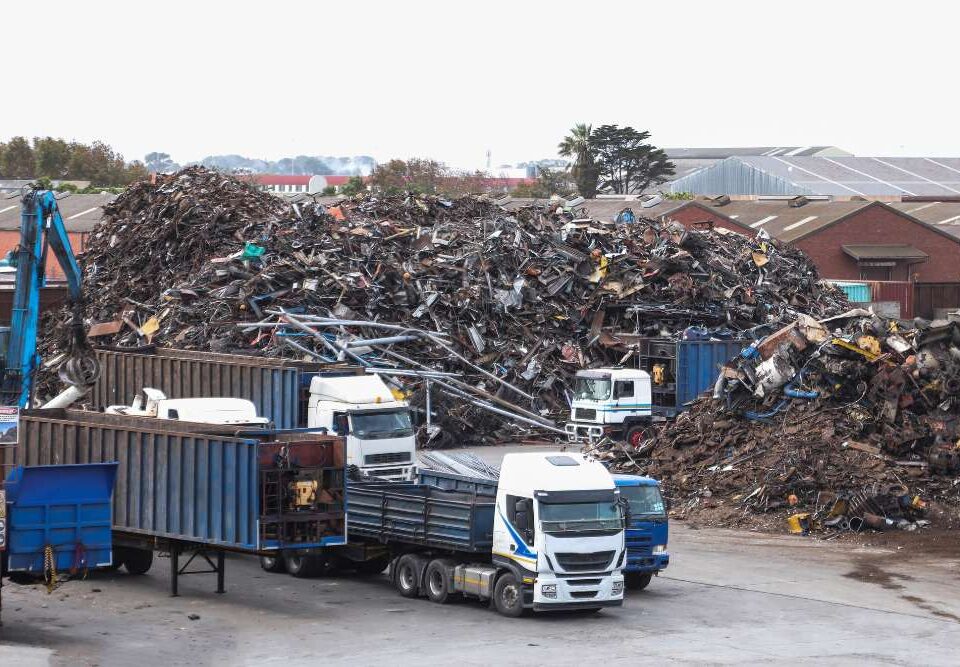
E-Waste Disposal What You Should Know Before You Dispose
September 15, 2025
How Junk Removal Can Reduce Your Environmental Footprint
September 15, 2025The Benefits of Scrap Metal Removal for Your Business
Scrap metal may seem like a pile of leftovers, but for businesses, it represents both an environmental responsibility and a practical opportunity. Warehouses, construction sites, manufacturing facilities, and even offices generate excess metal materials that often pile up unnoticed. Over time, these discarded metals can take up valuable space, create safety hazards, and even reduce the efficiency of daily operations. By implementing professional scrap metal removal, businesses can transform what looks like waste into a valuable resource while maintaining a cleaner and safer workplace.
Beyond immediate benefits, scrap metal removal contributes to sustainability goals and supports the circular economy. Metals can be recycled repeatedly without losing quality, which means every ton recycled reduces the need for raw mining and the environmental footprint associated with it. For businesses, the process combines practicality with responsibility, offering both financial and ecological rewards. Removing scrap metal isn’t just disposal—it’s smart resource management.
Improving Workplace Safety Through Scrap Metal Removal
Scrap metal lying around business premises is more than just unsightly clutter; it can be a serious safety hazard. Sharp edges, unstable piles, or obstructed pathways increase the risk of injuries for employees and visitors. By arranging for professional scrap metal removal, businesses can immediately reduce these dangers, ensuring that their workplaces are safer and more compliant with health and safety standards. This not only protects staff but also lowers the risk of liability issues for business owners.
Workplace safety also impacts productivity. A clutter-free environment allows workers to focus on their tasks without worrying about tripping hazards or navigating dangerous piles of debris. Employees often feel more motivated when they know their well-being is prioritized. Scrap metal removal is a straightforward way to maintain safety while keeping operations efficient. It sends a clear message that a business values its people and recognizes that safety is directly tied to overall success.
Maximizing Space For More Productive Operations
Businesses frequently underestimate how much valuable space is consumed by scrap metal buildup. Whether it’s old machinery, leftover materials from construction projects, or outdated equipment, these items can quickly dominate storage areas. Scrap metal removal creates space that can be repurposed for activities that directly support productivity, such as inventory management, equipment storage, or additional workspace for employees.
Maximizing available space is more than a matter of convenience—it can directly affect a company’s bottom line. Paying for larger facilities or additional storage is costly, especially when space is already being wasted on unused scrap. By clearing out these materials, businesses free up room for future growth without unnecessary expense. Scrap metal removal is an effective way to make the most of existing infrastructure, creating environments that are both functional and efficient. The result is streamlined operations and resources put to better use.
Supporting Environmental Responsibility In Business
Modern consumers and clients increasingly value businesses that demonstrate a commitment to sustainability. Scrap metal removal offers companies an accessible way to align with these values. Metals are infinitely recyclable, meaning they can be processed and reused without degrading in quality. This reduces the demand for new mining, which is often resource-intensive and environmentally damaging. Businesses that recycle scrap metal contribute directly to reducing their environmental footprint.
Beyond recycling, scrap metal removal helps businesses showcase their eco-conscious efforts. Whether through sustainability reports, marketing campaigns, or internal culture, companies can highlight how their waste management supports broader environmental goals. This not only builds trust with customers but also enhances brand reputation in an era where responsibility matters. By embracing eco-friendly practices, businesses prove that profit and environmental stewardship can work hand in hand. Scrap metal removal becomes a powerful part of a corporate strategy that values long-term sustainability.
Meeting Regulatory Requirements With Proper Disposal
Businesses must navigate a complex landscape of regulations surrounding waste management and disposal. Improper handling of scrap metal can result in significant fines, legal challenges, or reputational damage. Professional scrap metal removal ensures that businesses comply with local, state, and federal guidelines, removing the uncertainty and risk associated with managing these materials on their own.
Compliance isn’t just about avoiding penalties; it’s also about demonstrating accountability. By adhering to regulations, businesses build stronger relationships with regulators, local communities, and stakeholders. Proper disposal shows that a company takes its responsibilities seriously, which can be especially valuable in industries where scrutiny is high. Partnering with a professional junk removal service simplifies the process, ensuring all scrap materials are handled according to best practices. In doing so, businesses avoid unnecessary risk while reinforcing their image as responsible and trustworthy.
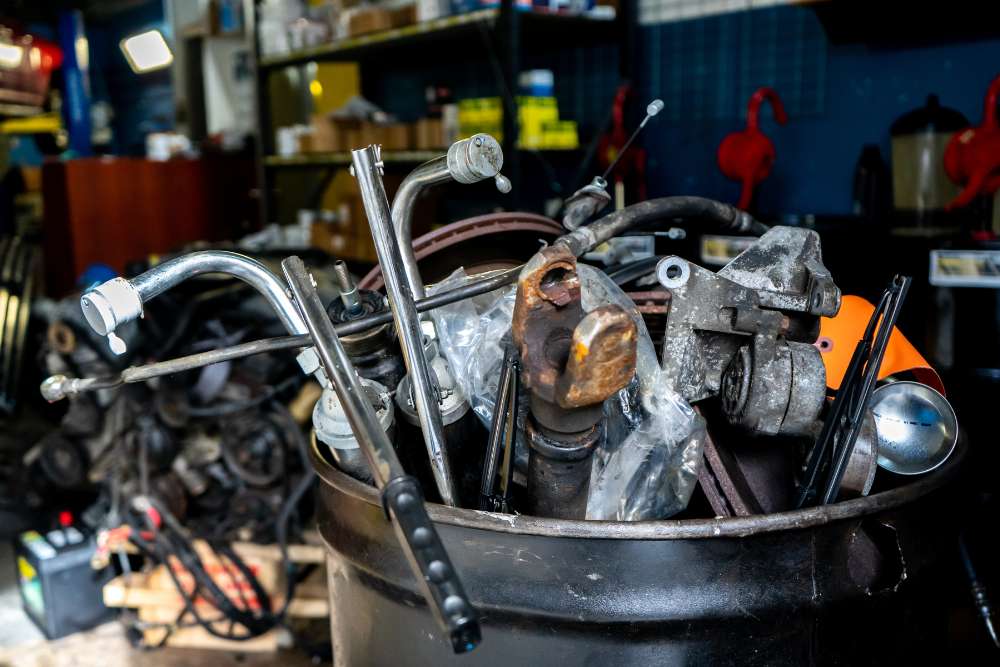
Reducing Operational Costs Through Scrap Metal Removal
Scrap metal clutter may be costing businesses more than they realize. Storing unused equipment or materials takes up space that could otherwise support revenue-generating activities. Additionally, disorganized environments often lead to inefficiencies that drive up operational costs over time. Professional scrap metal removal provides an opportunity to reduce these hidden expenses by restoring order and freeing up resources.
Cost savings don’t stop at storage. Businesses can often recoup value through recycling programs or partnerships that pay for certain types of scrap. While not every piece of metal carries monetary return, the overall savings from reduced space requirements and smoother operations can be significant. Scrap metal removal is an investment that pays off both immediately and in the long run, creating leaner, more cost-effective systems.
Enhancing Professional Image With A Cleaner Facility
First impressions matter, and a facility cluttered with scrap metal sends the wrong message to clients, partners, and potential investors. A clean, organized workplace reflects professionalism, efficiency, and care for detail. Scrap metal removal plays a critical role in shaping this image, ensuring that business spaces communicate the values of competence and responsibility.
Maintaining a tidy facility also boosts employee morale. Workers are more likely to take pride in their environment when it is well-kept and free of hazards. This pride translates into better productivity and stronger workplace culture. For businesses that rely on customer interactions, such as showrooms or service facilities, a cleaner space enhances trust and credibility. Scrap metal removal is not just about aesthetics—it is about creating a lasting impression that reinforces professionalism.
Boosting Efficiency In Manufacturing And Industrial Settings
In manufacturing and industrial operations, efficiency depends on streamlined processes and organized spaces. Scrap metal accumulation disrupts these systems, creating obstacles that slow production lines and increase downtime. Regular scrap metal removal ensures that machinery and equipment remain accessible, workflows stay smooth, and workers can perform their jobs without unnecessary interruptions.
Beyond workflow improvements, efficient scrap metal management can reduce wear and tear on equipment. Dust, debris, and clutter around production areas can damage machinery or increase maintenance costs. By keeping environments clean and free of excess metal, businesses protect their investments while maximizing output. In industries where time is money, even small gains in efficiency can produce substantial results.
Contributing To The Circular Economy
The concept of a circular economy is centered around keeping resources in use for as long as possible. Scrap metal removal is a direct way businesses can participate in this model. Metals, unlike many other materials, can be recycled indefinitely without losing their structural integrity. By recycling, businesses keep these resources within the economic cycle, reducing waste and conserving energy that would otherwise be used in producing new materials.
Participating in the circular economy brings more than environmental benefits. Businesses that commit to sustainable practices often gain stronger reputations, more loyal customers, and competitive advantages. They also become part of a larger movement that supports long-term economic and ecological stability. Scrap metal removal may seem like a small action, but when scaled across industries, it makes a powerful contribution to this system.
Creating Opportunities For Community Partnerships
Scrap metal removal doesn’t just benefit businesses internally—it can also strengthen ties with local communities. Through partnerships with recycling centers, donation programs, or local organizations, businesses can ensure their scrap is reused in ways that generate value beyond their own operations. This collaborative approach positions companies as active contributors to community well-being.
These partnerships can also spark innovation. For example, scrap materials might be repurposed for educational projects, artistic endeavors, or nonprofit initiatives. By making scrap metal available for such purposes, businesses demonstrate creativity and social responsibility. This builds goodwill and reinforces the idea that companies can serve as positive forces in their neighborhoods. Scrap metal removal, therefore, has ripple effects that extend far beyond individual facilities.
Encouraging Long Term Sustainability Goals
Sustainability is not achieved through one-time actions but through consistent practices that become part of business culture. Scrap metal removal supports these long-term goals by embedding recycling and responsible disposal into daily operations. Over time, this consistency builds a track record that reflects genuine commitment rather than temporary compliance.
Long-term sustainability is increasingly important to investors, clients, and customers who look for businesses with lasting vision. Companies that practice regular scrap metal removal demonstrate foresight by managing resources responsibly and minimizing environmental impact. This consistency also positions businesses to adapt to evolving regulations and consumer expectations. Scrap metal removal may seem like a short-term solution to clutter, but it is also a long-term strategy for resilience.
Conclusion
Scrap metal removal is much more than a way to clear clutter—it is a strategic investment in efficiency, safety, and sustainability. By removing hazardous materials, businesses reduce risks and improve workplace conditions. Recycling and proper disposal support environmental responsibility, while compliance with regulations ensures operations run smoothly without legal concerns. The process also frees up space, reduces costs, and enhances a company’s professional image. Over time, scrap metal removal contributes to the circular economy, fosters community partnerships, and reinforces long-term sustainability goals. Businesses that integrate this practice not only manage waste effectively but also strengthen their competitive edge.
For companies in Santa Rosa, CA, North Bay Junk Removal offers expert services designed to handle scrap metal responsibly while supporting eco-friendly initiatives. Their team ensures materials are recycled, donated, or disposed of safely, reducing environmental impact and maximizing value for businesses. Call 707-478-6817 today to schedule junk removal that helps protect your workplace, your community, and the planet.

